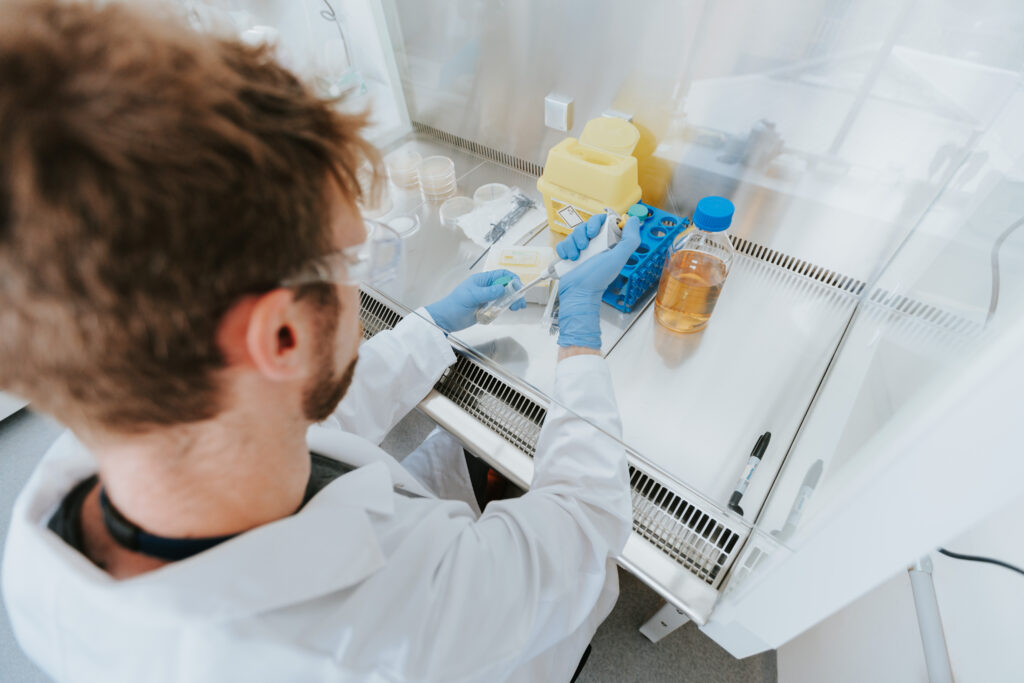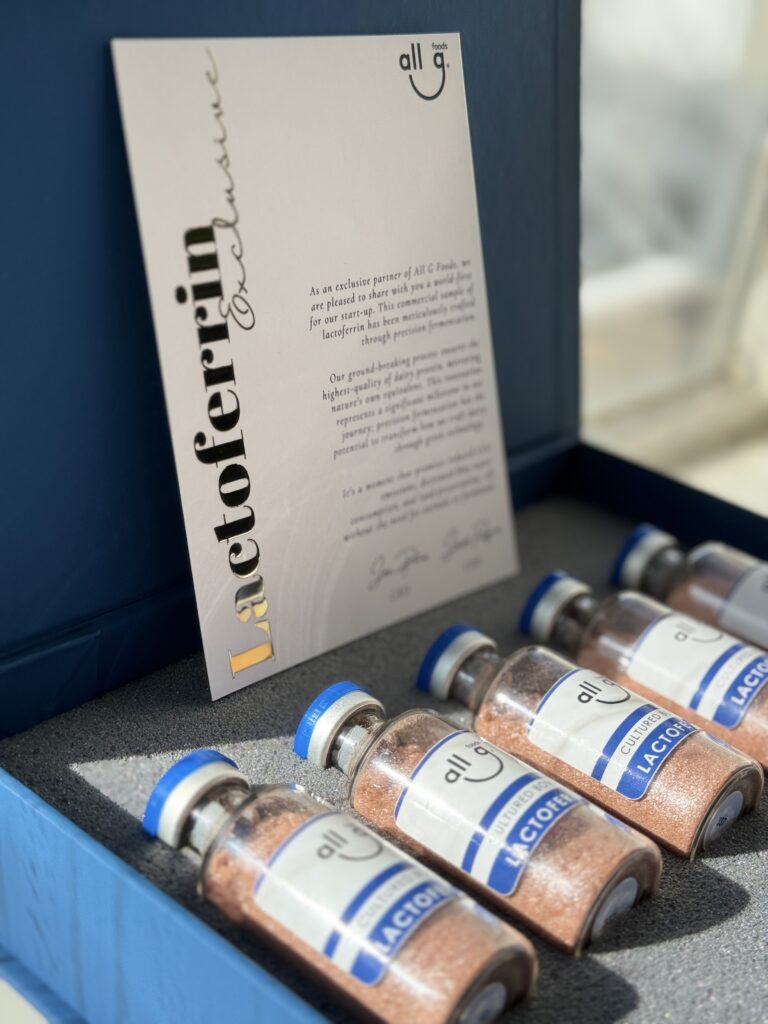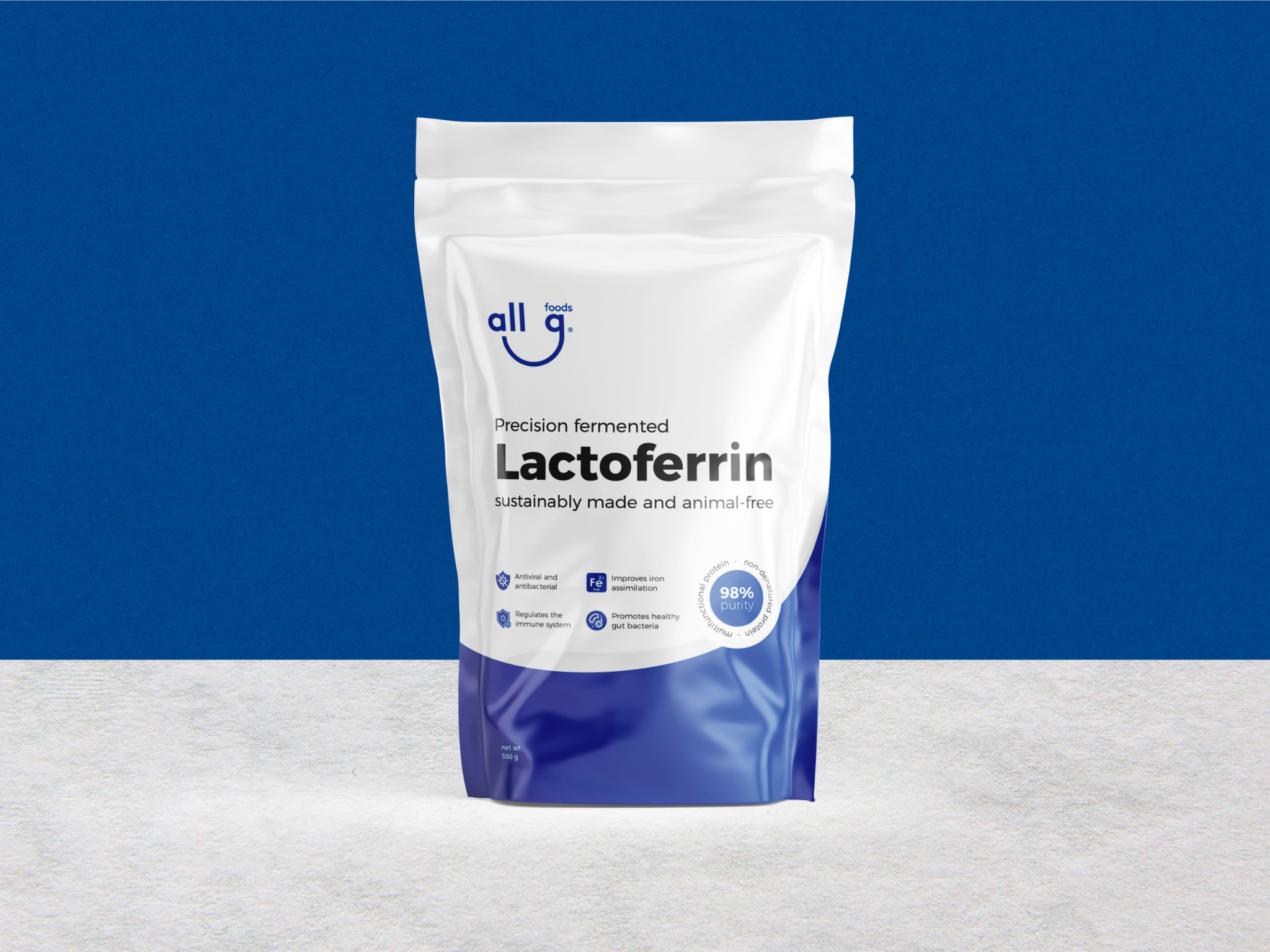5 Mins Read
Australian biotech startup All G has received a second regulatory approval for its precison-fermented bovine lactoferrin in a month – this time in the US.
Just weeks after becoming the first company to be cleared to sell cow-free lactoferrin in China, All G has now received approval in the US too.
The Australian precision fermentation startup has obtained self-determined GRAS (Generally Recognized as Safe) status in the country, paving the way for the market entry of its recombinant bovine lactoferrin, which is slated for the second half of 2025, founder and CEO Jan Pacas tells Green Queen.
All G will look to obtain a “no questions” letter from the US Food and Drug Administration next year, notifying the agency with necessary reports on the safety of the product. It’s a longer, more rigorous process that involves the review of both positive and negative studies on an ingredient, but it’s also viewed as more transparent and breeds market and consumer confidence.
The self-affirmed GRAS covers the whey protein’s applications in adult nutrition, but the company needs to clear additional hurdles to sell the ingredient for its dominant use case, infant formula.
“We can now engage with US food and beverage companies to bring a stable supply of an affordable, high-purity protein that can either be substituted into existing production processes, or used to open up new markets,” says Pacas.
In the meantime, All G is also working on human lactoferrin, targeting a commercial launch in 2025, as well as casein proteins.
A high-purity, low-cost, cow-free lactoferrin

Lactoferrin is a highly prized whey protein found in human milk and bovine colostrum just after birth, and boasts many functional benefits, including antiviral, antibacterial, anti-carcinogenic, immunity-boosting, and gut-strengthening properties.
The ingredient has been named ‘pink gold’ – pink because it’s rich in iron and has a reddish hue, and gold because it’s in short supply. Lactoferrin is only available in small concentrations in cow’s milk, and current processes require 10,000 litres of milk to produce just 1kg of purified lactoferrin, driving up costs to hundreds or even thousands of dollars per kg (depending on the level of purity).
This confines the protein’s use to only certain applications, such as baby formula and supplements. But its functional attributes mean demand is ripe for other applications too, including functional foods and drinks, protein powders, plant-based milk, and oral nutrition support for the elderly.
To meet that demand while keeping costs low, All G is among a handful of startups growing the protein in bioreactors via precision fermentation – the technology combines traditional fermentation with the latest advancements in biotech to efficiently produce a compound of interest (in this case, a protein). It’s the same process used to make most insulin today, as well as rennet for cheese.
“We do an optimised upstream process with our production organism that secretes the lactoferrin into the fermentation media,” explains chief scientific officer Jared Raynes. “We then separate the biomass and purify the lactoferrin using chromatography – the same used by the dairy industry – and then remove the salt and dry [it].”
He adds that there are several technical challenges to overcome when producing lactoferrin this way: “Precision-fermented lactoferrin needs to exhibit high purity and bioactivity, equivalent iron saturation status, and have native-like glycosylation patterns to be considered bioequivalent. We have managed to meet these stringent requirements through our deep R&D expertise.”
The five-day process results in a nature-identical lactoferrin with over 98% purity, and at significantly lower costs. “We believe we have the world’s most efficient strain for bovine lactoferrin production,” Pacas told Green Queen last month. “We already have yields at pilot scale that would result in COGS [cost of goods sold] much, much lower than today’s lactoferrin prices. And we are continuing to optimise.”
All G working on human lactoferrin and casein proteins

All G started off by selling plant-based meat products, but last year pivoted to solely focus on precision fermentation. It has so far raised $41M in investment, and is now in talks with multiple contract manufacturing facilities to scale up production both in the US and the EU.
Last month, the startup secured the greenlight to sell its bovine lactoferrin in China, though this so far doesn’t cover infant nutrition either. But to truly take on the bovine lactoferrin industry, targeting that category is key for animal-free players.
All G is working towards receiving approval for baby formula. Self-determining GRAS status isn’t enough for this application in the US, though – it will require a “no questions” letter from the FDA.
Specifically, this would need a Premarket Notification, which includes more extensive safety assessments tailored to infant populations. “This typically involves additional toxicology studies to demonstrate suitability and safety for infant consumption. We’re actively planning this pathway and gathering the necessary data to meet these requirements,” says Pacas.
Our casein production is going well and we aim to move to a 1,000-litre scale in the first half of 2025.
Jan Pacas, CEO, All G
The startup is in active discussions with global manufacturers and customers for its ingredient, and is also developing recombinant human lactoferrin – the protein is available in significantly larger concentrations in breast milk than in bovine colostrum.
All G is already producing human lactoferrin on a grams per litre scale, with a commercial launch planned for late 2025.
Moreover, it’s developing a patented IP portfolio around both bovine and human casein, as well as casein micelles (spherical building blocks for the functional and nutritional attributes of dairy products). Casein is the most abundant protein group found in cow’s milk, and gives cheese its melty and stretch properties by emulsifying water and oil.
“Our phosphorylated casein production [essential for micelle formation] is going well and we aim to move to a 1,000-litre scale in the first half of 2025,” Pacas says.
All G is the second company to achieve self-affirmed GRAS status for animal-free lactoferrin in the US, after Singapore’s TurtleTree. Several other precision fermentation firms are now working on this protein, including fellow Australian player Noumi, New Zealand’s Daisy Lab, and US startups Helaina, De Novo Foodlabs and Triplebar Bio.



